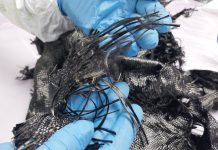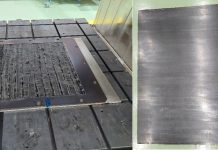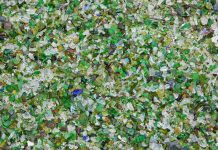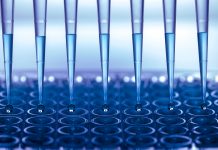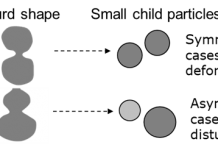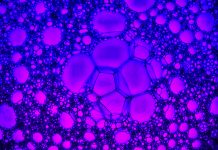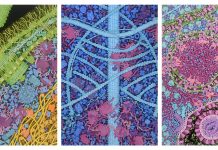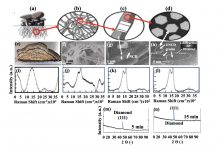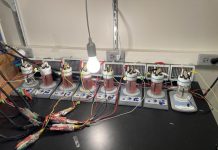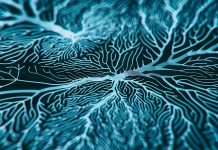Open Access Government produces compelling and informative news, publications, eBooks, and academic research articles for the public and private sector looking at health, diseases & conditions, workplace, research & innovation, digital transformation, government policy, environment, agriculture, energy, transport and more.
Home 2023
Archives
Recycling fibre-reinforced composite parts
Uncured carbon fibre recycling by Bulk Moulding Compound (BMC).
Fresh prepreg multilayer scrap reuse
To address waste generated during production, a processing route for uncurde material is developed in MC4. Multilayer fresh prepreg scrap is processed to obtain new intermediate products that can be used to manufacture new parts.
MC4 Project: Improving the EU capacity to process and recycle composite materials
The MC4 European research project aims to develop economically and technically feasible technologies for recycling fibre-reinforced composite parts.
Chicken or egg? Pursuing historical context
Charles W Carter Jr, Department of Biochemistry & Biophysics, University of North Carolina at Chapel Hill, explores prebiotic processes from the historical context enabling the emergence of translation.
The sustainable catalyst-based chemical industry
Dr Xochitl Dominguez Benetton, Senior Scientist and Project Coordinator from the Flemish Institute for Technological Research, walks us through the sustainable catalyst-based chemical industry which is very much a part of the FIREFLY project.
CB₂R ligands to treat inflammatory diseases
Researchers discuss how scientific innovations might influence the discovery of future tailor-made CB2R-based anti-inflammatory treatments.
Online pressure and gas analysis of lithium-ion cells during abuse tests
Dr Carlos Ziebert, Leader of the Group Batteries – Calorimetry and Safety, KIT, explains how online venting gas analysis of batteries can be performed using a combination of battery calorimetry and online mass spectrometry.
Interdisciplinary research on the splitting process of various particles
Professor Ken Naitoh from the Department of Applied Mechanics and Aerospace Engineering at Waseda University in Japan, walks us through universal laws discovered from outstanding integrated interdisciplinary research on the splitting processes of various particles.
Artificial intelligence (AI) and biomaterials: A perfect BandAId™
Thomas J Webster, Ph.D., Professor and Entrepreneur, is investigating the potential of AI in medical applications and biomaterial production.
Computational biology is poised to advance precision medicine with machine learning
Today, scientists are attempting to model whole cells using computational biology, building virtual cells that capture the dynamics of living.
CO2 bioeconomy: Creating value from carbon dioxide
Is the CO2 bioeconomy creating value from carbon dioxide? Dr Kang Lan Tee and Professor Tuck Seng Wong both explain.
The rotating lepton model: Electron and positron catalysis of chemical and nuclear synthesis
Professor Emeritus Constantinos Vayenas from the University of Patras and PhD student Dionysios Tsousis from Stanford University discuss electron and positron catalysis in the CERN e+e- annihilation experiments via the Rotating Lepton Model.
Early detection of algal infection using direct real-time chemical ionization mass spectrometry
Robert S. Pomeroy, Teaching Professor at UC San Diego, guides us through the early detection of algal infections using direct real-time chemical ionization mass spectrometry.
Decarbonising the world economy with synthetic biology
Macquarie University Distinguished Professor Ian Paulsen, discusses how synthetic biology can be used to decarbonise the global economy.
Pioneering biomass transformation to unique multifunctional/ biocompatible ultrananocrystalline diamond (UNCDTM)
O. Auciello's group atThe University of Texas-Dallas is developing a new revolutionary low-cost microwave plasma pyrolysis process, implemented in a kitchen microwave oven, for biomass transformation.
Fostering self-regulated learners through child-centred evaluation activities
Emiko Izumi, PhD from Kwansei Gakuin University, discusses child-centred evaluation activities, including enhancing thinking, judgment and expression skills.
Innovative dynamic molding to reduce development costs of personalized medicine
3Deus Dynamics has raised €2.5 million for the industrialization of its 3D process, to expand internationally and revolutionize personalized medicine with Dynamic Molding.
Industrial organization: understanding the mechanisms of market structures
Patrick Legros, Professor of Econonmics at Université libre de Bruxelles, explores how Industrial Organization can help understand the positive and normative consequences of different...
How to convert CO2 to bioplastics in the age of global warming
Arpita Bose, PhD, Associate Professor, describes how to convert CO2 to bioplastics through new bugs and novel tools with a focus on fighting global warming.
CorTec’s Brain Interchange™ system: Revolutionizing brain therapy with closed-loop neuromodulation
CorTec’s Brain Interchange™ system offers closed-loop neuromodulation, revolutionizing brain therapy by precisely adapting treatment based on individual needs.

